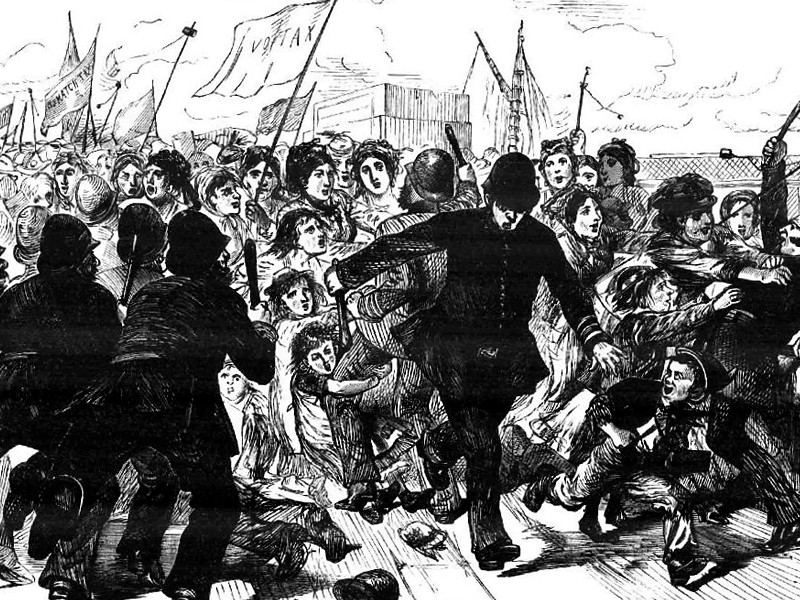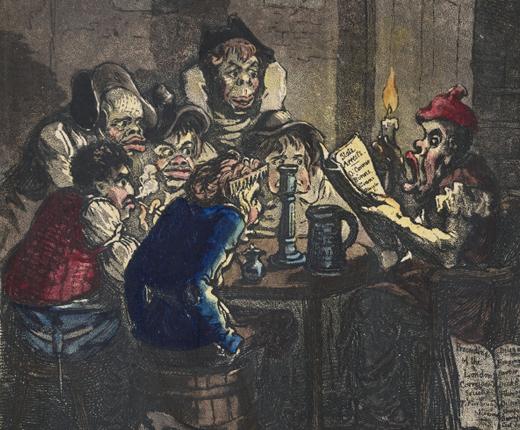
Radicalism and Popular Protest in Georgian Britain, c. 1714–1832
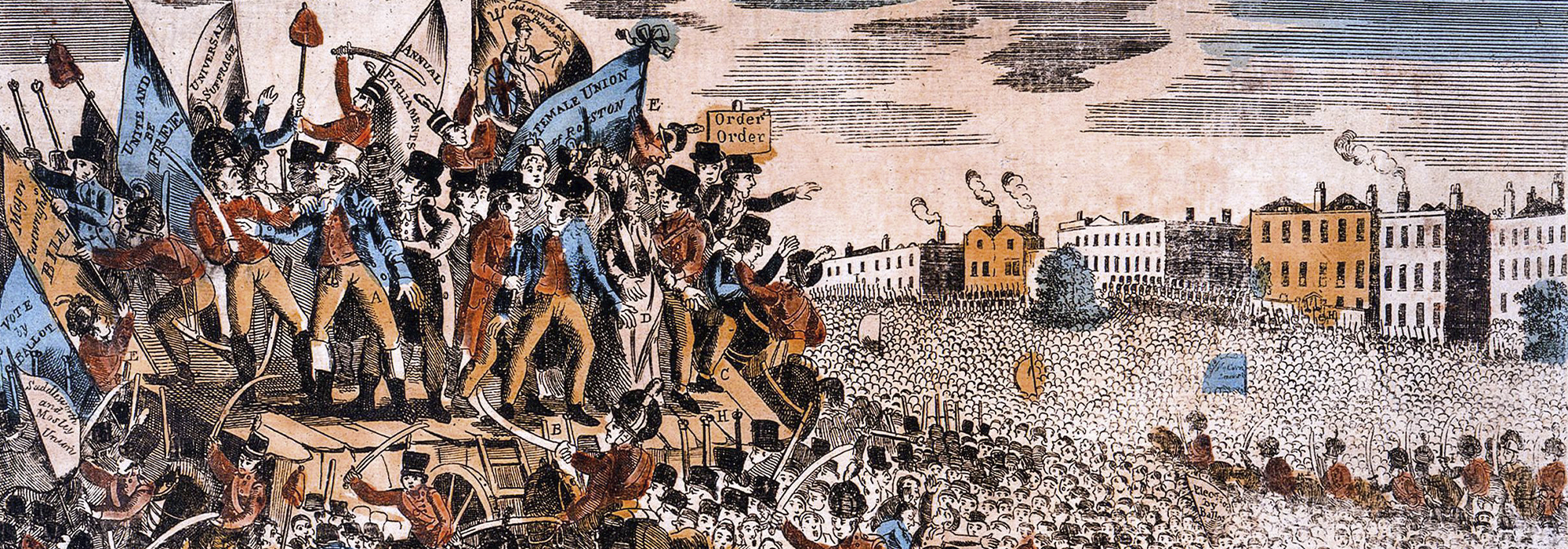
People, power, rights, and representation
The radicals of the 1790s and 1830s built upon the foundations laid by earlier campaigners [. . .] while articulating a new language of Paineite universalism and, increasingly, of working-class consciousness. The documents and pamphlets preserved in Radicalism and Popular Protest in Georgian Britain, c. 1714–1832, make it possible to trace this transformation.Records Specialist, The National Archives (UK).
Access the full collection
Access the full archive of Radicalism and Popular Protest in Georgian Britain, c. 1714–1832.
Institutional Free Trial
Start your free trialRegister for a free 30-day trial of Radicalism and Popular Protest in Georgian Britain, c. 1714–1832, for your institution.
Institutional Sales
Visit Sales PagesellFor more information on institutional access, visit our sales page.
Already have a license? Sign in.
Explore the role of radicalism, dissent, and popular protest in Georgian society


Great Britain was transformed in the Georgian period, which began with the accession of King George I in 1714. Against a backdrop of immense social and cultural change, political radicalism was fuelled by revolutions abroad and Enlightenment ideas of liberty and egalitarianism. At the same time, the impact of wars, industrialisation, and economic change resulted in unemployment and high taxes and prices, leaving many in society impoverished and desperate for change.
Comprising over 90,000 images sourced from The National Archives (UK) and the Working Class Movement Library (UK), this fascinating collection examines stories of protest and dissent, activism and unrest, conspiracies and plots, and acts of treason and rebellion against the government and the monarchy.
A radical press thrived in a time of prolific popular print culture, and radical societies and revolutionary committees around Britain demanded reform. This collection features influential works of radicals and reformers, such as Thomas Paine, the political theorist whose calls for fundamental change had such an impact in revolutionary America.
It also surveys rioting in the 1720s to protests in the 1830s, when the 1832 Reform Act quelled some calls for reform, while igniting many others. The sources include numerous accounts of agricultural disorder and industrial grievances, such as frame–breaking and Luddism. An unstable relationship between the people and the authorities raised issues of suffrage, citizenship, rights, class, and gender. Significantly, this collection celebrates the agency of ordinary people within, and their contribution to, popular protests.
Featured are a wide range of sources, including pamphlets and “seditious” publications and papers; posters, broadsides, and handbills; poetry, songs, and ballads; and satirical prints and cartoons. The records are drawn from a number of government papers, including King’s Bench and Treasury Solicitor files that document state trials, riots, and sedition.
Interdisciplinary in approach and ethos, this collection will appeal to students, educators, and researchers studying social and cultural history, particularly those interested in popular politics and social movements, print culture, legal history, and the history of ideas. Those situated within the fields of criminology, sociology, and other branches of the social sciences will likewise find much of value in this collection—its themes resonate strongly with modern day popular protest campaigns concerning rights, representation, and social justice.
Contents
Radicalism and Popular Protest in Georgian Britain, c. 1714–1832...
People, power, rights, and representation
Discover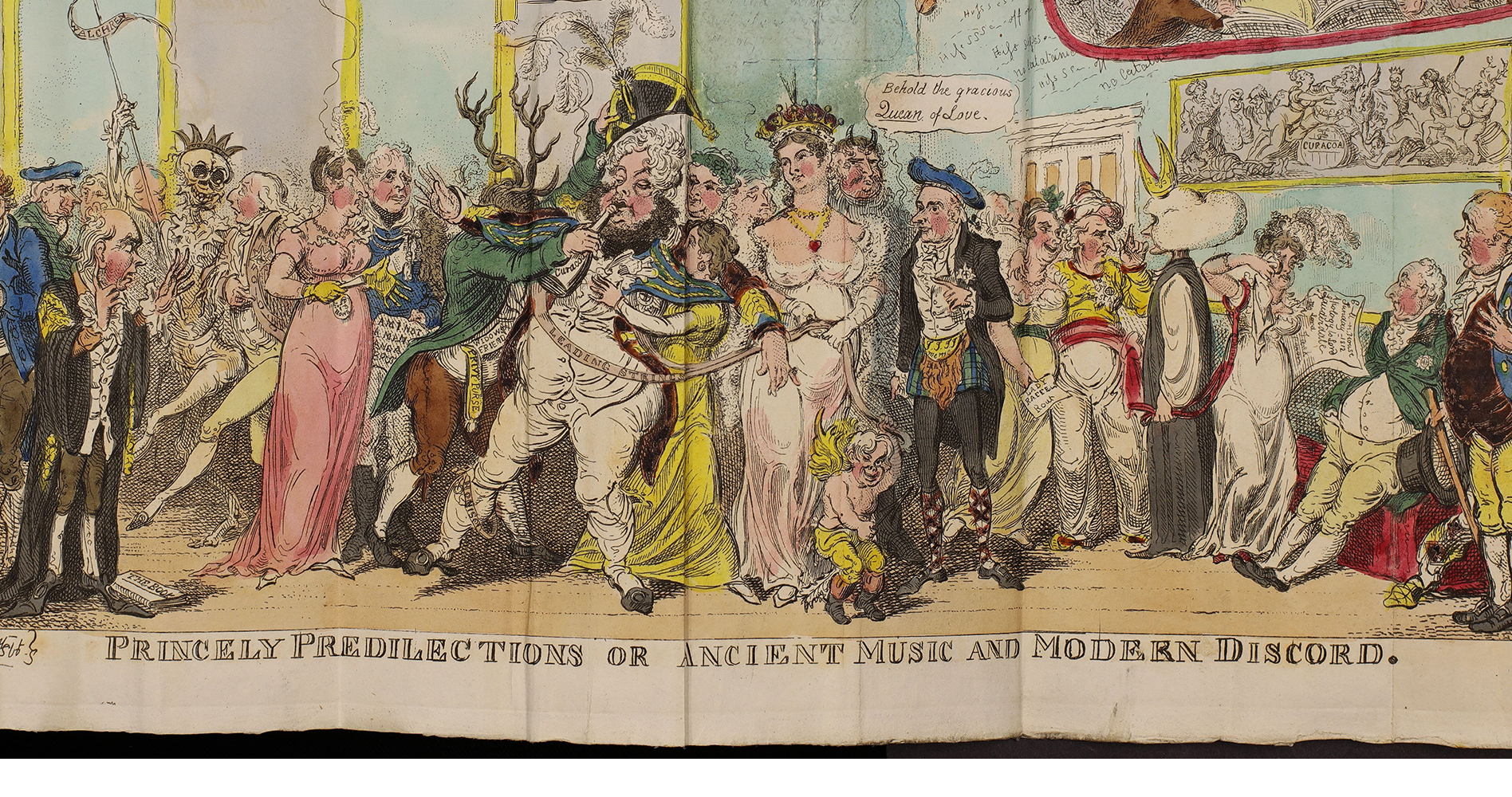
Highlights
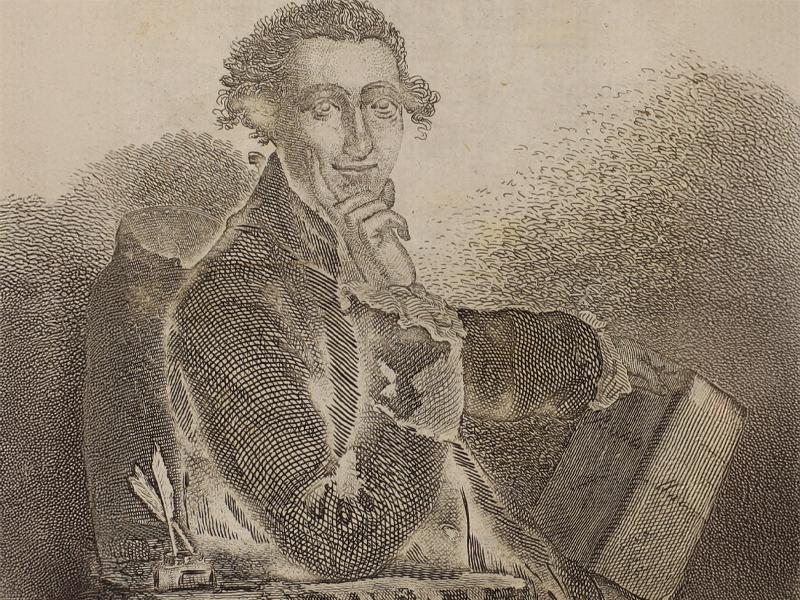
Licensed to access Paine's Political Writings
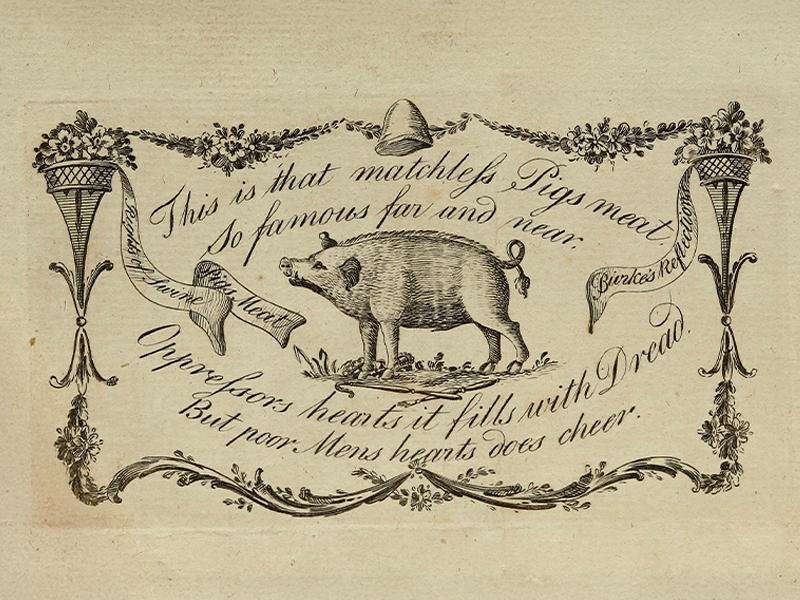
Licensed to access Radical Periodicals
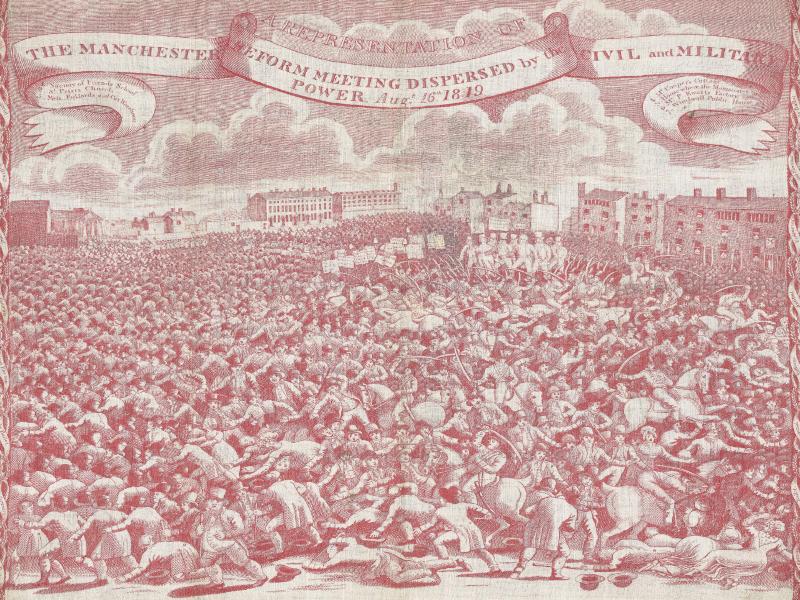
Licensed to access Peterloo
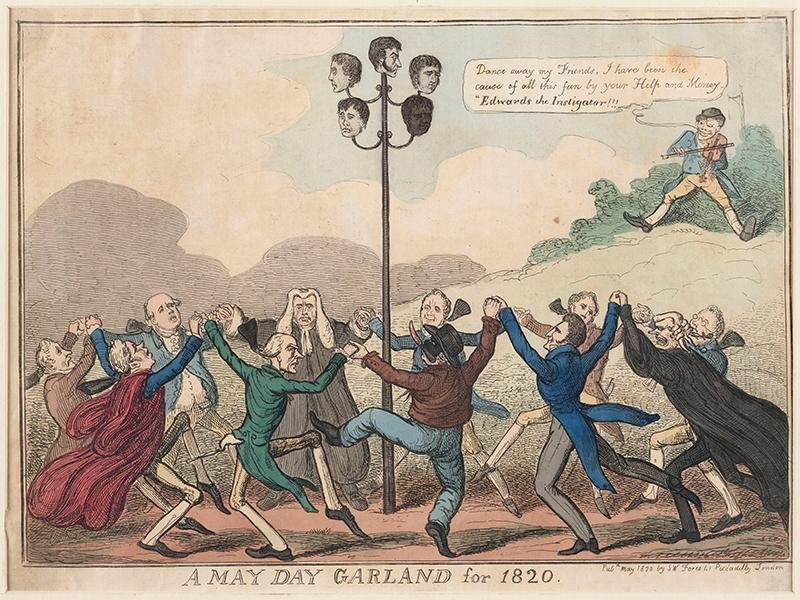
Licensed to access Cato Street Conspiracy
Insights
- Featured are the stories of radicals, rebels, and revolutionaries in Georgian Britain. A wave of revolutionary activity throughout the Atlantic world (in Britain’s American colonies, in France, and in Haiti) had a profound impact on the spread of ideas. Writers, orators, printers, and publishers whose work was deemed treasonous or seditious, such as William Hone or John Horne Tooke, met with government repression, restrictive laws, and high profile criminal trials—a number of verbatim accounts of these trials are included. Pamphleteering and political satire were prolific, bringing British society into dialogue with the authorities over questions of rights and representation.
- What was new in this dialogue was the voice of the working classes. Popular politics thrived in periods of economic depression and unemployment, and in a political climate fluctuating between war and peace. A network of radical working class corresponding societies and debating clubs emerged in London in the 1790s, as well as in Derby, Birmingham, Leeds, Nottingham, Sheffield, and elsewhere. These groupings agitated for universal male suffrage, freedom of speech, and democratic reform of the British Parliament. For example, the shoemaker, Thomas Hardy, advocated political reform and founded the London Corresponding Society. He was arrested and tried for high treason in 1794.
- Protest arose both from government action and apathy. For example, supporters of the English radical journalist and MP, John Wilkes, called for “Wilkes and Liberty” in the 1760s. At Spa Fields in London in 1816, followers of the revolutionary, Thomas Spence, demanded common ownership of land and democratic equality. In March 1817, thousands of weavers prepared to march to London from Manchester to present a petition for reform in the so-called “March of the Blanketeers”.
- In times of poverty, rising prices, and food scarcity, agricultural disorder and disaffection was common throughout the Georgian period. Localised bread and corn riots were frequent, as were protests against taxes and turnpikes. Increasing mechanisation was a source of discontent. The Luddites were mainly croppers, a highly skilled group of cloth finishers, who damaged new cropping machines across Lancashire, Nottinghamshire, and Yorkshire. During the “Swing” disturbances of the early 1830s, labourers in the South-East of England likewise protested against agricultural mechanisation.
- Correspondence from around Britain compiled by the Home Office and found in domestic state papers details individual cases of unrest and disturbances. It also contains impounded pamphlets and other papers relating to riots, protests, and political activities and writings. The fascinating sources in this collection provide an insight into Georgian society, amplifying the voices of people from differing class backgrounds who strove for rights and representation.
Unlock Historical Research for Your Institution
Provide your students and researchers with direct access to unique primary sources.
Related Media

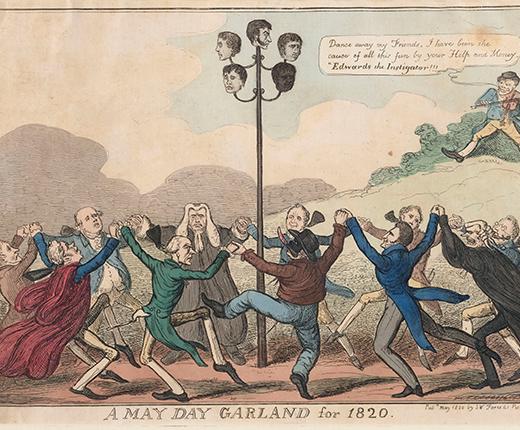
Document of the Week: A Coded Speech Relating to the Cato Street Conspiracy, 1820 Document of the Week
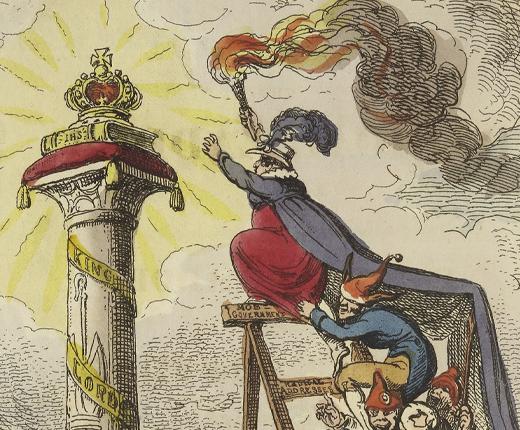
Document of the Week: “The Radical Ladder” (1820) Document of the Week
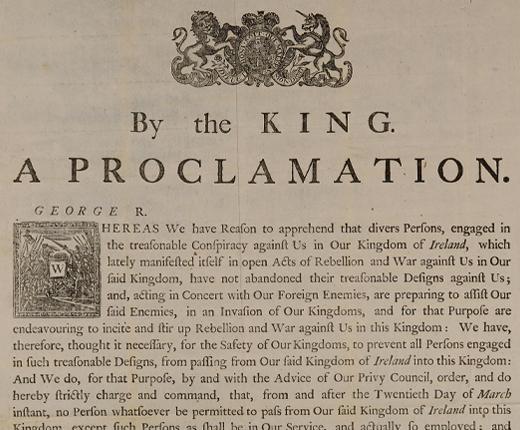



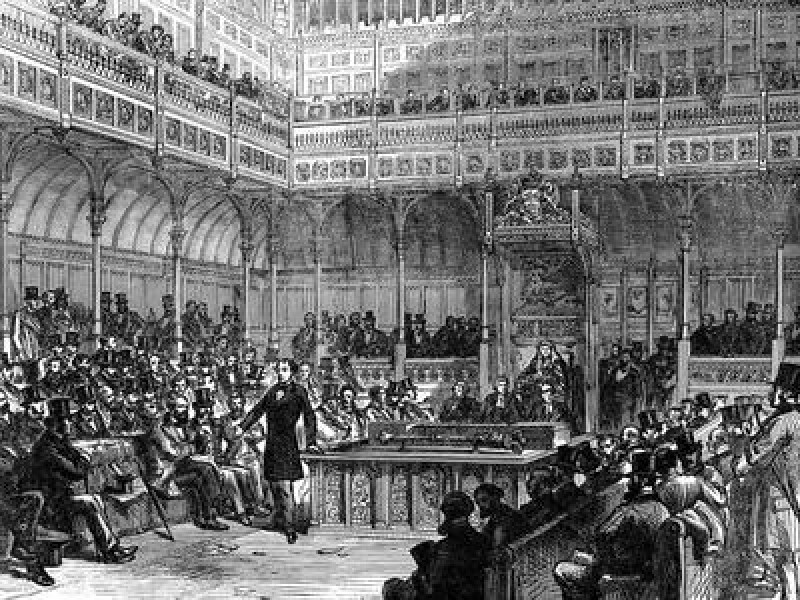
-colour.svg)


